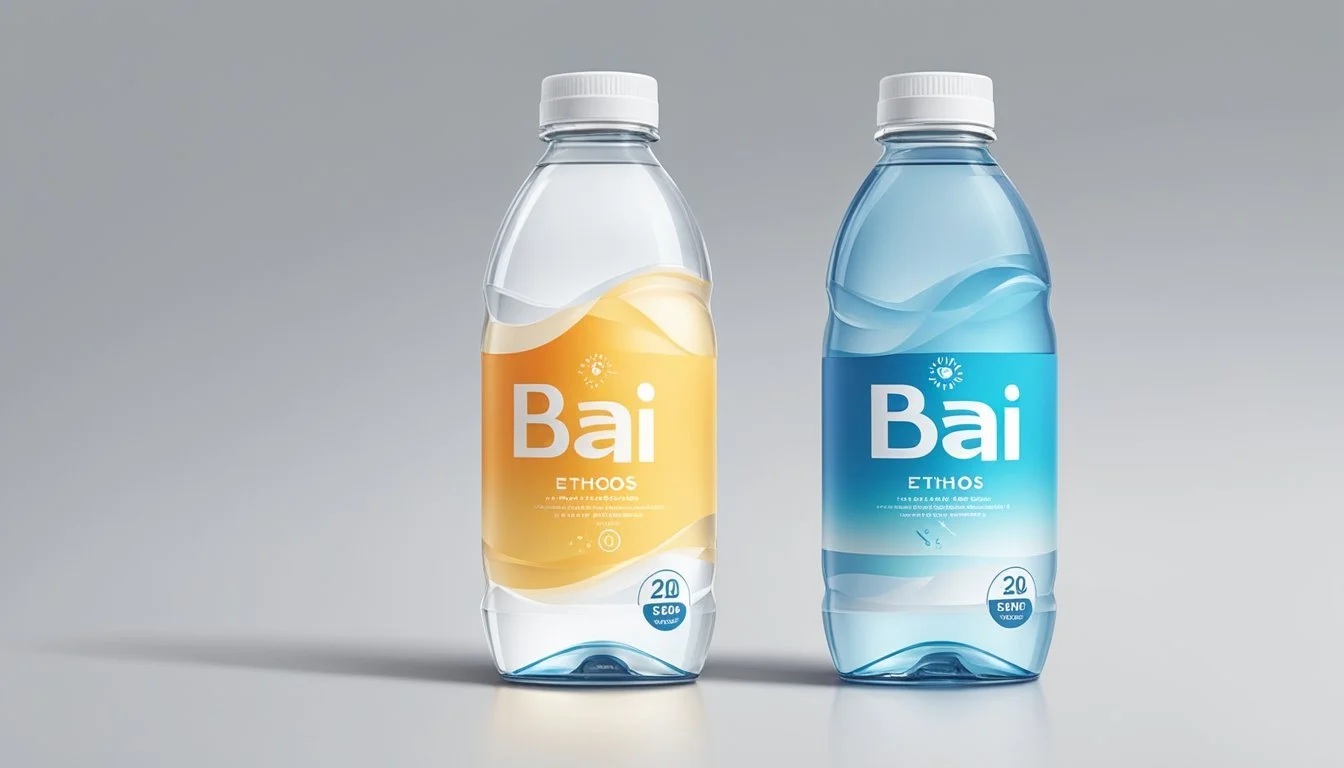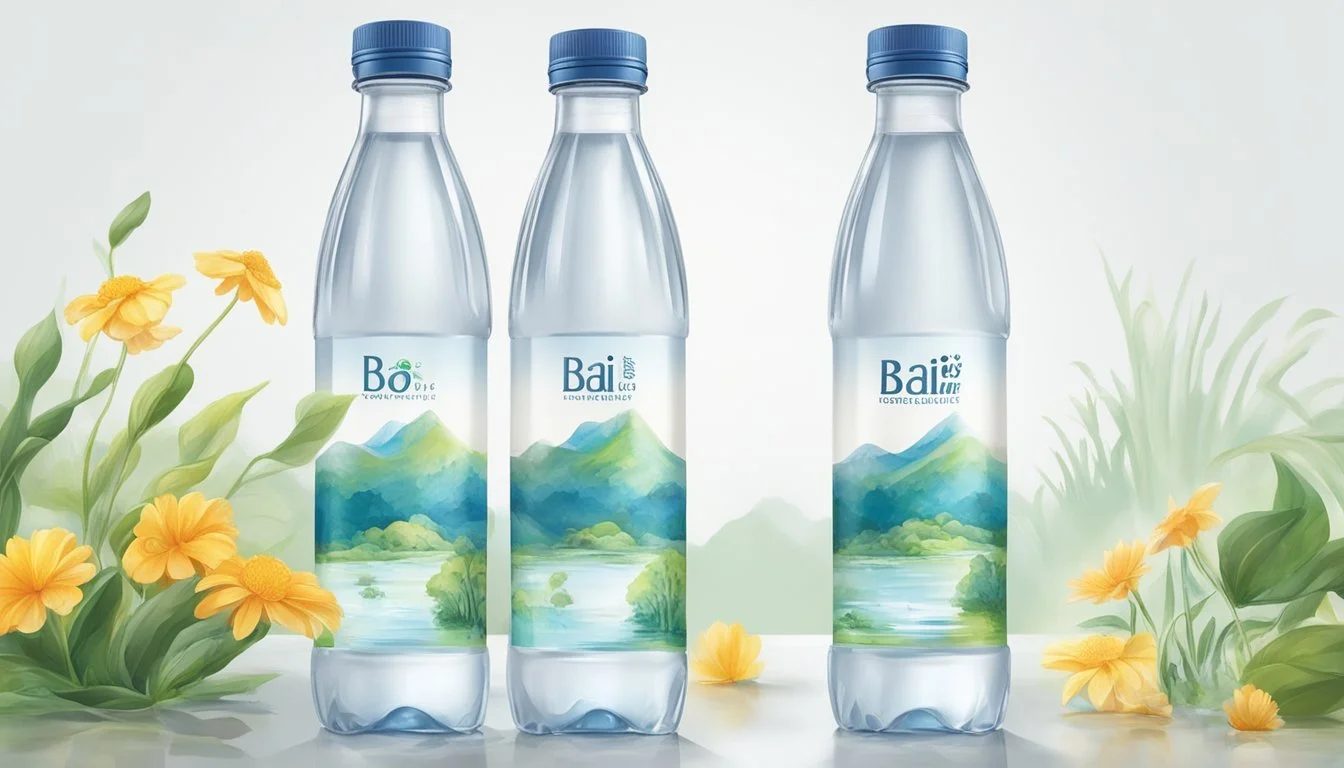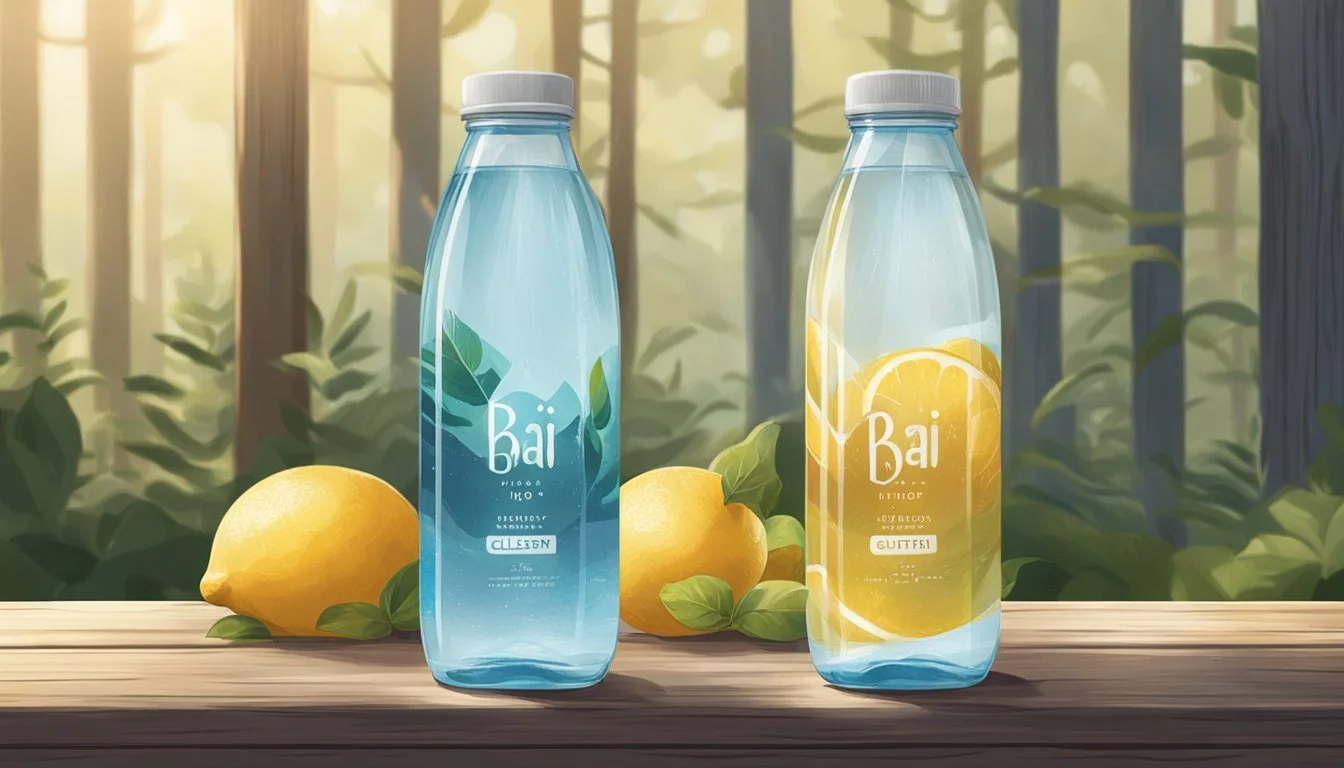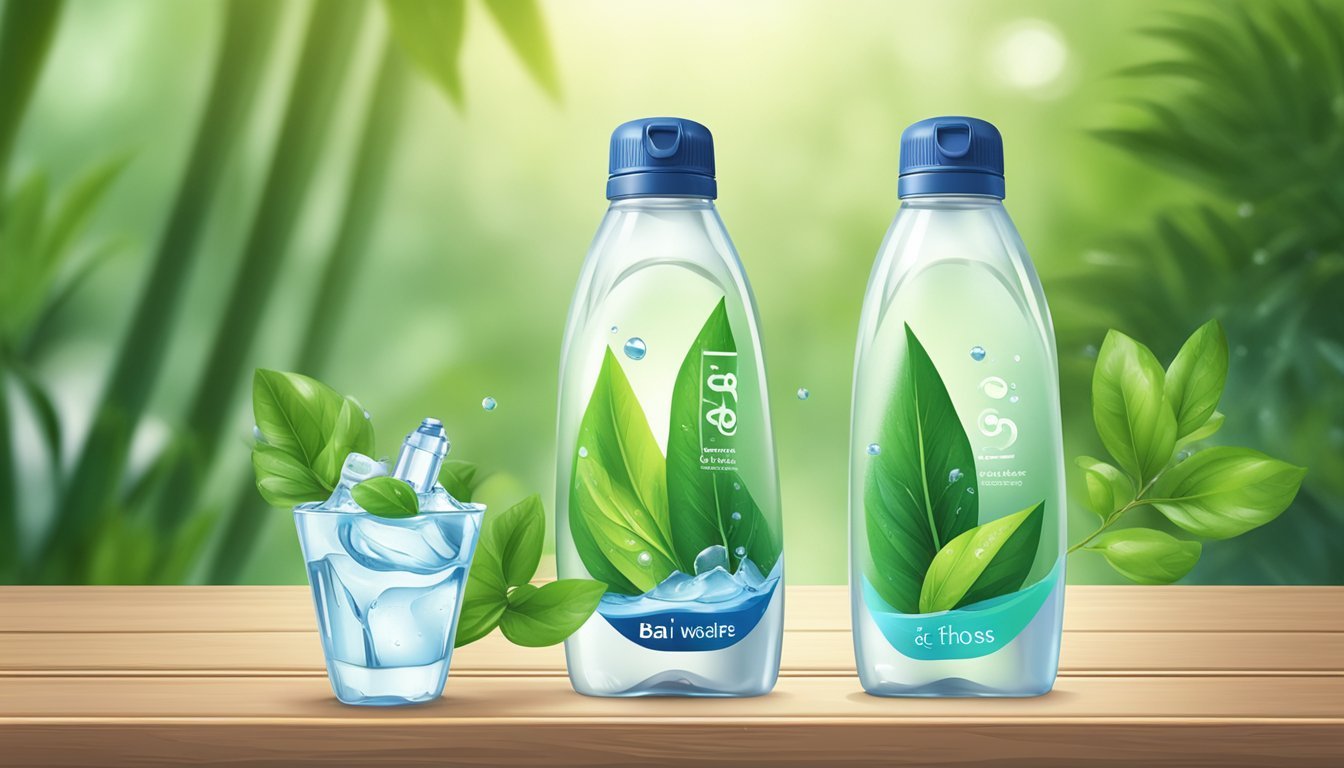Bai vs. Ethos
Comparative Analysis of Bottled Water Brands
Choosing the right bottled water can often come down to personal preference, but understanding the differences between brands is key to making an informed choice. Bai and Ethos represent two distinct options in the bottled water market, each with its unique selling points. Bai is known for its antioxidant infusion, offering flavors elevated by the essence of the coffee fruit. This gives Bai a niche appeal, particularly among those seeking a beverage with added benefits like increased vitamin C levels.
Ethos Water, on the other hand, aligns with a socially responsible ethos. This brand has built its reputation not only on the quality of its water but also on its commitment to humanitarian efforts. A portion of Ethos Water's profits supports programs that provide clean water to underprivileged communities around the world. This aspect might sway consumers who are looking for a product that provides a tangible social contribution alongside personal hydration.
Exploring the Brands
Choosing between Bai and Ethos water brands requires an understanding of what each offers. Let's examine their origins, commitments to sustainability, and corporate affiliations.
Bai Water Brand Overview
Bai, a beverage brand owned by Dr Pepper Snapple Group, which is a business unit of Keurig Dr Pepper, made a name for itself with its fruit-flavored drinks, often infused with antioxidants. Its water product, Bai Antioxidant Water, boasts added electrolytes and a pH balance to appeal to health-conscious consumers. In its commitment to health, Bai Water is distinct for having only 1 gram of sugar per bottle.
Corporate Affiliation: Keurig Dr Pepper
Product Specialties: Antioxidant-infused beverages
Sugar Content: 1g per bottle
Sustainability: Not the primary focus
Ethos Water Brand Overview
Ethos, part of the Starbucks family and distributed by PepsiCo, presents itself not just as bottled water, but as a socially responsible choice. With a pledge to contribute to water accessibility initiatives globally, a portion of their profits goes toward such causes. The brand prides itself on these philanthropic efforts, and though owned by one of the largest coffee chains in the world, they maintain a distinct presence in the bottled water market.
Corporate Affiliation: Starbucks and PepsiCo
Social Responsibility: Portions of profits go to water access initiatives
Sustainability: Central to the brand's mission
Source and Purity
In comparing Bai and Ethos bottled water brands, the distinction lies in their respective water sources and the assiduity with which they maintain purity and minimize contamination.
Water Sources
Bai advertises its bottled water as sourced from deep within the Indonesian rainforest, touting it as naturally filtered and rich in minerals. The company often implies that its exotic source contributes to both the purity and unique mineral content of its product.
Ethos Water, on the other hand, is less about exotic sources and more about social ethos. The brand, owned by Starbucks, draws water from various sources, including public water supplies and natural springs. A portion of their profits is dedicated to clean water initiatives.
Purity and Contamination
Concerns around purity and contamination are central to any discussion about bottled water.
Bai emphasizes the natural filtration process afforded by its rainforest source. The brand claims that this process reduces contaminants and yields water that meets stringent purity standards.
Ethos Water, when sourced from public supplies, undergoes purification processes such as reverse osmosis and microfiltration. When sourced from springs, the water typically goes through similar filtration to meet or exceed rigorous quality controls.
Bottled water purity is not just about the absence of contaminants but also about the presence of beneficial minerals. Both brands aim to strike a balance between ensuring a clean product and maintaining a natural mineral profile.
Health and Hydration
When evaluating the health and hydration aspects of Bai and Ethos bottled waters, one must consider their respective hydration benefits and nutritional content.
Hydration Benefits
Hydration is essential as it allows the body to maintain its physiological balance, supports vital functions, and helps in nutrient transport. Both Bai and Ethos bottled waters offer hydration, but with different added benefits. Bai contains antioxidants, which can help combat free radicals in the body. Ethos, on the other hand, prides itself on providing a clean and pure form of water without additional ingredients.
Nutritional Content
Bai Water:
Electrolytes: Minimal amounts, not a significant source.
Antioxidants: Contains antioxidants from the coffee fruit extract and tea extract.
Caffeine: Some varieties may contain caffeine.
Sodium: Low in sodium; typically about 10mg per serving.
Vitamin C: Not a significant source.
Potassium: Not a significant source.
Ethos Water:
Electrolytes: Some bottles are enhanced with added electrolytes for taste.
Antioxidants: Does not contain added antioxidants.
Caffeine: Contains no caffeine.
Sodium: May contain minimal amounts of naturally occurring sodium.
Vitamin C: Does not specifically include Vitamin C.
Potassium: Level of potassium not typically highlighted.
Bai emphasizes its addition of antioxidants which might be beneficial to health, while Ethos focuses on simplicity and the absence of unnecessary additives. The choice between Bai and Ethos comes down to personal preference for additional health benefits like antioxidants versus the pursuit of pure hydration.
Taste Profile
When evaluating bottled waters like Bai and Ethos, one must consider their unique taste profiles. These brands have distinct flavor influences and consumer preferences that set them apart from each other and other bottled water options.
Flavor Influences
Bai: It positions itself as a more flavorful option compared to traditional bottled water. Bai incorporates natural flavors derived from the fruit surrounding the coffee bean. This gives it a distinctive taste with a variety of fruit-inspired flavor offerings. Bai's waters often are infused with antioxidants and are labeled as having zero calories, appealing to those seeking a flavorful yet low-calorie beverage alternative.
Ethos: Ethos Water adheres to a more classic approach, focusing on the purity and simplicity of water taste. Its profile is designed to reflect the clean and straightforward taste of water without added flavors. By staying true to the natural essence of water, Ethos aims for a taste that is refreshing and hydrating, aligning with those who prefer unflavored bottled water.
Consumer Preferences
People's preferences for bottled water taste can range widely. Some consumers prioritize the taste of water itself, opting for products like Ethos that offer a clear and unaltered water experience. The lack of additional flavors makes Ethos a preferred choice for purists who value the authentic taste of water.
In contrast, there are those who seek a more engaging drinking experience. Bai caters to this audience by offering a variety of flavors that add a twist to the standard water taste. Consumers who enjoy flavored beverages without the added calories might find Bai's creative and naturally sweetened options more appealing.
Through these brands' diverse taste profiles, from the naturally flavored and calorie-conscious options of Bai to the traditional and pure water taste of Ethos, consumers have the opportunity to choose based on their individual taste preferences and health considerations.
Environmental Impact
When comparing Bai and Ethos bottled water, the environmental impact is a significant factor. The analysis focuses on the brands' sustainability initiatives and their practices regarding plastic use and recycling.
Sustainability Initiatives
Bai emphasizes its commitment to minimizing environmental impact by implementing various sustainability initiatives such as sourcing water from environmentally responsible sources. They have also adopted energy-efficient production practices. Ethos, on the other hand, operates under a social enterprise model, where a portion of each purchase goes toward water-related projects in underdeveloped communities, often with a sustainable approach to water access.
Plastic Use and Recycling
The use of plastic bottles is a critical environmental consideration for both Bai and Ethos water. Bai's bottles are made of PET plastic, which is widely recognized for its recyclability. They encourage consumers to recycle but do not have a dedicated post-consumer recycling program. Ethos also uses PET bottles and often highlights their commitment to reducing plastic waste. They partner with recycling programs to ensure the bottles are processed correctly post-use. Both companies' bottles are BPA-free, mitigating the harmful effects BPA can have on the environment and human health.
Recycling initiatives are central to both brands' operations, as they aim to reduce the negative impact of plastic bottle use. They advertise their bottles as 100% recyclable, which helps to lessen their environmental footprint. However, the actual recycling rates depend on consumer behavior and local recycling facilities' capabilities.
Product Offerings
In the world of bottled water, Bai and Ethos represent unique approaches to hydration with their respective product lines, catering to different consumer preferences with an array of flavored and pure water selections.
Flavored Varieties
Bai's product offerings in the realm of flavored water are diverse and feature exotic names tied to their flavor profiles, such as Brasilia Blueberry and Costa Rica Clementine. These beverages are notable for not only their taste but also for their inclusion of antioxidants, with Bai advertising itself as a low-calorie and low-sugar option.
Flavors Offered by Bai:
Brasilia Blueberry
Costa Rica Clementine
Ipanema Pomegranate
Ethos, on the other hand, seems to focus less on flavored varieties and more on their mission of providing clean, safe water and giving back through their charitable efforts.
Pure Water Selection
When it comes to pure water selections, both brands have options for consumers looking for the best bottled water experience without added flavors.
Bai: Offers an Antioxidant Water which is distinct from its flavored varieties. This product is enhanced with selenium and boasts of a pH level advertised to be over 7.5.
Ethos: Known for its Natural Spring Water, Ethos bottles their product with a focus on both quality and charitable contributions, with each purchase helping to fund water, sanitation, and hygiene education programs in water-stressed countries.
Both Bai and Ethos are committed to providing water that not only meets the needs of hydration but also aligns with consumer values, whether those values are health-oriented additives or social responsibility.
Market Presence
In the bottled water industry, market presence is primarily determined by consumer demand and the effectiveness of a brand’s availability and distribution strategies. Demonstrating a strong presence means that a product is both sought after by consumers and easily accessible across various retail channels.
Consumer Demand
Bai and Ethos operate in a competitive bottled water market, where consumer demand significantly impacts their market presence. Bai's bottled water is distinct in its antioxidant infusion and variety of flavors, which has garnered a dedicated customer base particularly interested in health benefits and unique offerings. On the other hand, Ethos Water taps into consumer desire for social responsibility with its promise to donate a portion of each sale to fund water programs in developing countries.
Grocery Store: Bai is often featured in grocery stores, positioned as a premium bottled water among health-conscious shoppers. Ethos Water is also available in many grocery stores, with its mission-driven approach appealing to socially aware consumers.
Convenience: Both brands are known to be spotted in convenience stores, although Bai's attractive branding can make it stand out more prominently on the shelves.
Availability and Distribution
The availability and distribution of both Bai and Ethos Water reflect their market presence. Bai has established a strong network that ensures its products are available in multiple locations, from local stores to nationwide chains.
Grocery Store: Bai is widely distributed and typically easily found in the bottled water sections of grocery stores.
Local Water: While both brands are available locally, Ethos Water's availability can be more selective as it partners with specific retailers to reinforce its brand mission.
The distribution of Ethos Water is strategic, focusing on partnerships with retailers that align with its brand ethos, like Starbucks, which owns the brand and ensures high visibility. However, Bai benefits from broader availability, which can lead to greater market penetration.
Comparative Analysis
This section provides a detailed comparison between Bai and Ethos bottled water brands, focusing on cost effectiveness and brand positioning in the market.
Cost Comparison
When it comes to cost, Bai and Ethos bottled waters position themselves differently. Bai often markets itself as a premium beverage brand and its pricing reflects this strategy. The brand not only sells water, but also water infused with antioxidants and other flavors, which can increase the price per bottle.
Ethos, on the other hand, is known for its ethical approach and charitable contributions to global water programs. The cost of Ethos water may be higher than some other brands due to its socially responsible business model, which includes a promise to donate a portion of each sale to water-related causes.
Brand Positioning
Bai prides itself on providing a range of antioxidant-infused beverages. The brand has carved out a niche for those seeking additional health benefits in their bottled water, setting it apart as a top-tier option among the best water brands for those looking for more than just hydration.
Ethos, which was once part of Starbucks, has a brand positioning strategy deeply rooted in ethical commitments. The brand leverages its commitment to solving the global water crisis as a defining characteristic, drawing customers who value social responsibility from popular brands.
Both brands have crafted unique identities that may appeal to different consumer segments, making them stand out in lists that rank bottled waters from worst to best. Bai targets health-conscious consumers, while Ethos aims to attract socially aware individuals.
Additional Considerations
When choosing between Bai and Ethos bottled waters, consumers often consider factors beyond taste and hydration. The impact of packaging on the environment and the certifications that vouch for product quality are significant determinants.
Packaging Innovations
Bai has not been notably recognized for packaging innovations in the provided data. However, the industry is steadily moving towards more eco-friendly packaging options, and companies like Bai might be expected to follow this trend.
In contrast, Ethos water, a part of the Starbucks brand, has taken steps towards environmental responsibility. They provide a portion of their proceeds to water, sanitation, and hygiene education programs worldwide. While information specific to Ethos's packaging is not highlighted, Starbucks does have a general commitment to sustainability which may influence its bottled water line.
Industry Certifications
When it comes to certifications, these are essential for ensuring that bottled water brands comply with specific safety and quality standards. The Environmental Protection Agency (EPA) establishes health-based standards for drinking water which include both bottled and tap water. It is important to note whether Bai or Ethos bottled water adheres to these standards or if they have other industry certifications that testify to their water quality.
Bai: As per the search results, Bai boasts of a blend of alkaline minerals for a higher pH, and its use of selenium as an antioxidant. However, there is no direct mention of EPA compliance or other certifications.
Ethos: Ethos water's affiliation with Starbucks suggests oversight and a degree of compliance with industry standards, possibly extending to certifications. However, specific certifications are not mentioned in the search results and would need to be verified through additional sources.
By assessing the packaging innovations and industry certifications of Bai and Ethos waters, consumers are equipped to make a more informed decision.
Consumer Insights
In the competitive bottled water market, customer perception plays a significant role in determining the preference between Bai and Ethos as well as other popular brands. This section delves into what customers are saying about these brands in terms of reviews and ratings, as well as their loyalty and trust towards the brands.
Reviews and Ratings
Consumer reviews and ratings often provide an in-depth look at the satisfaction level of bottled water users. Bai boasts a unique selling point with its antioxidant infusion and low-calorie count, receiving positive feedback for its health benefits and taste. Ethos Water, owned by Starbucks, is often praised for its charitable initiative, dedicating a portion of its sales towards global water projects. These aspects contribute positively to their ratings.
Other brands like Fiji and Evian are consistently rated high for their mineral content and taste. Dasani and Aquafina, which are purified municipal waters, tend to receive mixed reactions due to taste preferences. Nestlé Pure Life is noted for its accessibility but has average reviews, reflecting a perception of it being a middle-of-the-road choice. Premium brands such as Voss and Icelandic Glacial hold strong ratings for their crisp taste and brand prestige.
In contrast, some brands like Smartwater and Life WTR gain approval for innovative filtration processes and added electrolytes. Customers tend to give favorable ratings to Essentia for its high pH level, catering to those seeking alkaline water. Similarly, Hint water receives commendation for its absence of sweeteners and subtle flavor infusions.
Loyalty and Trust
Brand loyalty and trust are crucial for continued consumer support. Ethos Water's social responsibility commitment garners trust among consumers who value corporate ethics. They are perceived as not just providing hydration but also contributing to a greater cause. Bai also cultivates loyalty through its distinct health-oriented branding, appealing to health-conscious consumers.
For traditional brands such as Poland Spring, Arrowhead, and Ice Mountain, their longstanding presence in the market engenders a deep-seated trust and loyalty from a segment of consumers who prefer natural spring waters. However, a recent shift in consumer behavior shows an increased loyalty towards brands with eco-friendly packaging and sustainability practices, influencing brands like Fiji and Evian to implement more sustainable solutions.
Newer entrants to the market like Core Hydration and LIFEWTR are building their consumer base by emphasizing purity and design, respectively. The unique selling proposition of each brand—whether it's Hydro-7's seven-stage purification process, Penta's ultra-pure water, or Eternal Water's naturally alkaline source—plays a significant role in cultivating trust.
It's vital to note that despite individual preferences, external factors like water source scandals or environmental non-compliance can quickly erode consumer trust in any brand, highlighting the importance of transparency and accountability in maintaining consumer loyalty.








